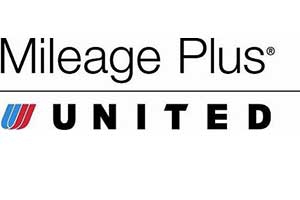 When our parents said, “There’s no such thing as a free lunch,” they were right.
When our parents said, “There’s no such thing as a free lunch,” they were right.
The price of a free airline ticket is rising drastically. Yes, we’re talking about FREE tickets – award flights –so, how could the price rise when it’s essentially nonexistent?
Turns out, they weren’t free to begin with, and the fact of the matter is: your reward points are (were) worth more than you think. A study published by IdeaWorks Co. in July found that each United MileagePLus mile is worth about 5 cents when used to purchase Business Class upgrades on international flights, while domestic coach awards are worth about 1 to 1.4 cents per mile.
Beginning Feb. 1, United Airlines will raise the number of frequent –flier miles needed to book an award flights. Business Class to Europe will increase by about 20 percent and First Class on partner airlines will climb about 63 percent to Europe and Japan and a whopping 87 percent to the Middle East.
But let’s not place all the blame on United. Business Class flights to Europe at the lowest saver level will hike from about 100,000 miles to 125,000 miles starting June 1.
Luckily, domestic travel won’t be affected all too much. Standard economy tickets to Hawaii on United will raise about 12 percent and about 10 percent on Delta starting Feb. 1.
And while Southwest and Alaska airlines plan on taking similar initiatives early next year, people can beat most of the award-price increases if they act fast. Begin planning your 2014 travel now, if you haven’t already.
Customers complain that the raising price for awards devalues the miles or points in the account, and rightfully so. The currency no longer has the same buying power, and frequent flier forums are jokingly referring to Delta SkyMiles as “SkyPesos” and United’s MileagePlus program as “MileageMinus.”
The increases on long-haul flights reflect product improvements, Delta spokesman Paul Skrbec told The Wall Street Journal. For Business Class, this includes lie-flat beds and cabins configured so every seat has aisle access.
“To maintain the same price for a superior product doesn’t make sense,” Skrbec said.
United is saying the same thing: that the premium-cabin award prices increased because of improvements made in Business and First Class.
“These award levels reflect the value of the product,” United’s vice president of loyalty, Praveen Sharma, told The Wall Street Journal. United hasn’t raised award rates since 2008.
Airlines also attribute the higher award requirements to higher ticket prices. It’s a classic example of supply and demand: a recovering economy has ceded high demand for premium seats. The International Air Transport Association recorded an 8.6 percent increase in the number of premium travelers flying world-wide in August and a 3.3 percent increase in September.
Elite airline status is no longer what it used to be, and your loyalty will no longer be rewarded like it used to be. These days, your best bet may be to find the cheapest fare and consider your “rewards” as the immediate savings you saw.

 Save up to 60% on Business Class. Call 1-800-435-8776
Save up to 60% on Business Class. Call 1-800-435-8776

Leave A Comment